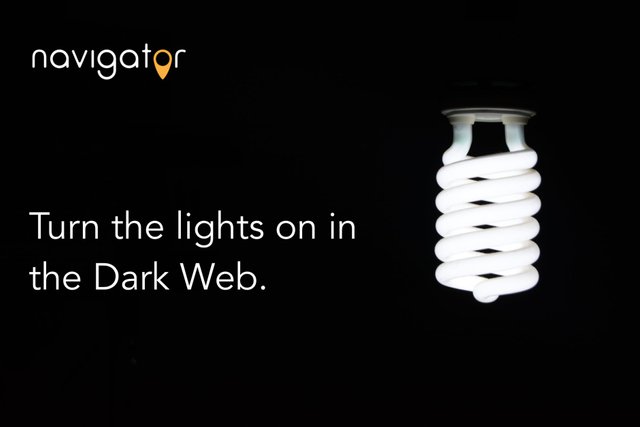What is the Dark Web? A Brief Blurb from the Non-Technical Mind

Chances are, we all fall into one of the following categories when it comes to what we know (or think we know) about the Dark Web:
🚀 Those who actively engage in and around the Dark Web
🤔 Those who have heard of the Dark Web, but aren't entirely sure what it is, or how to access it
✔️ Those who have a solid understanding on the Dark Web, but don't have reason to poke around
💲 Those who think Dark Web = Bitcoin and Blockchain
⚠️ Those who think all evil lives and breathes on the Dark Web - so, where you buy guns, drugs, counterfeit products or hire a hitman.. among other dubious things
So, what is the Dark Web?
According to the definition straight out of the dictionary, it's "the part of the World Wide Web that is only accessible by means of special software, allowing users and website operators to remain anonymous or untraceable."
Fair.. but what is it really? And what are the other parts of the World Wide Web?
In a nutshell:
- The Surface, or Clear Web is anything that can be indexed by a typical search engine like Google, Bing or Yahoo
- The Deep Web is anything that a search engine can’t find
- The Dark Web then is classified as a small portion of the Deep Web that has been intentionally hidden and is inaccessible through standard web browsers
The key thing to keep in mind is the Dark Web is a small portion of the Deep Web (another post for another day). There are different percentages thrown around out there, however it's safe to say that somewhere between 4-10% of the internet is considered "clear", or indexed by Google. That leaves between 90-96% that lies in the Deep and Dark Web. Another thing to note: like the Clear Web, the Dark Web is accessible with the right OSINT (Open Source Intelligence) Tools. Dark Web Monitoring intelligence is increasingly important to security teams globally - if you want to learn more about this, let me know and we can chat further on LifeRaft Navigator.

Visually, what is the difference between a Dark website and a Clear website?
When you access the internet, you do so through a browser such as Chrome, Firefox, Explorer, or Safari. These are essential portals to accessing the internet. You then likely use a search engine for a website or information of interest.
To access the Dark Web, you need a different browser (so not Chrome, Firefox, Explorer, or Safari) and there is no Dark Web search engine (more on that another day).
A site that can be accessed by your everyday browser, such as Chrome or Safari, generally ends in ".com", ".ca", ".org" or something along those lines. Those on the Dark Web end in ".onion" and the rest of the address is a series of letters and numbers that are intentionally difficult to memorize, making searching the Dark Web more difficult. Outside of that, the look and feel of the sites are very similar.
So, where did the Dark Web come from, and who created it?
Honestly, I have no idea who created it. What I do understand, is that the Dark Web in this context is referring to "darknet". The Dark Web has military origins, and was used as a way to share intelligence undetected. The most commonly used Dark Web browser, Tor (The Onion Router) was created by the US Navy in the late 90s.
Now, how do I access the Dark Web?
Just as you would access the Clear Web, you use a specific browser - as mentioned above, Tor is often used, as are I2p and Freenet as other examples - all of which you can download from the Clear Web.

Is accessing the Dark Web dangerous?
Yep - it sure can be. You need to consider privacy and your computer security if you plan on taking the plunge into the Dark Web. Dark Web browsers, such as Tor, can leave your location exposed, and open your computer and network to all sorts of nasty viruses.
Is it illegal to access the Dark Web?
Nope - there are many illegal activities taking place, but simply accessing the Dark Web isn't in itself illegal. The Dark Web can be a very valuable tool in parts of the world where freedom of speech is either forbidden or frowned upon, or where even accessing the internet itself may be considered criminal.
Okay, but there is an underground market for all things nefarious, right?
Bluntly, yes. There are many disturbing transactions that take place, including but not limited to child pornography and prostitution; selling drugs & guns, and counterfeit products such as pharmaceuticals, commercial goods, & money; exposing credit card information, full identities, or credentials for popular services such as Netflix.. the list is ongoing.

What if I want to learn more, from a more expert mind?
Conducting a quick Google search will give you plenty of resources, as will YouTube.. and of course, there are members of our lovely @Steemit community that can always provide you with far more technical information if you want to know more! If you'd like to learn more on Open Source Dark Web Monitoring, check out LifeRaft Navigator.
Congratulations @fit6ix! You received a personal award!
You can view your badges on your Steem Board and compare to others on the Steem Ranking
Vote for @Steemitboard as a witness to get one more award and increased upvotes!
Downvoting a post can decrease pending rewards and make it less visible. Common reasons:
Submit